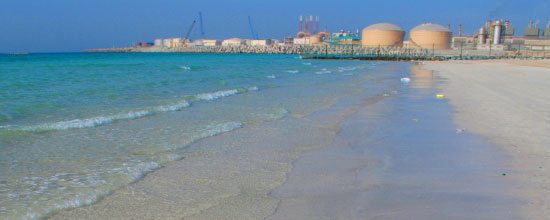
marine water filtration systems are effective tools used to create fresh drinking water from seawater. They efficiently transform salty ocean water into potable drinking water without expending excessive energy resources.
On the market, there are various filtration systems. Popular options include reverse osmosis, sediment, and activated carbon filters.
?What are the advantages of this system
Marine water filtration systems offer numerous advantages, such as the removal of toxins, chemicals and bacteria from seawater. These systems separate salt from water and can be utilized for treating drinking water as well as other applications.
They're easy to install, can be placed anywhere on the vessel and connected to a water pump or pressure system. Furthermore, these filters use less power than standard filters, saving you money in the long run.
When selecting a filtration system, flow rate should be taken into consideration. A high-efficiency filter allows more gallons of water to be produced per minute without slowing down the speed too much.
They could even be more efficient than standard water filters, saving you money in the long run.
Flow rates are essential because they indicate how effectively a filter removes contaminants from water. Some filters will completely stop the flow of water, while others only slightly slow it down.
A reliable hose-end filter should be certified by the National Science Foundation (NSF). They must have a chlorine removal efficiency of 25 percent and restrict flow rate to 2.5 gallons per minute, necessitating replacement every year or so; however, it's worth taking extra effort in getting an efficient unit that performs as promised.
?What does this system do
Marine water filtration systems offer an efficient solution to producing clean and safe drinking water from various sources. Whether you're on vacation or camping in the woods, these systems can keep you hydrated no matter what the situation may be.
Generally, these systems purify water, eliminate sediment and reduce odors and tastes. They come in a range of sizes to meet your requirements and budget.
For marine applications, a reverse osmosis system is the optimal choice. This process uses pressure to push seawater through a semipermeable membrane and separate salt and minerals from product water. It's highly effective at eliminating microscopic contaminants like fluoride, chlorine, lead, pesticides, nitrates, sulfates and more from microscopic levels.
Another popular option for boaters is a microbial barrier filter, which eliminates bacteria and viruses. These filters are NSF-P231 certified and designed to make microbiologically contaminated water safe to drink without the use of disinfection chemicals.
Are you searching for an efficient and cost-effective way to produce freshwater from the seawater onboard your vessel? A marine reverse osmosis system is one of the best choices. These small units are easy to install and maintain, plus they have the capacity to desalinate water from saltwater sources with ease.
?What is special about this system
Marine water filtration systems, also referred to as watermakers, convert saltwater into potable freshwater so you can stay hydrated and healthy on the go. Whether taking a short day sail or an extended transatlantic journey, having an efficient filtration system in place can make all the difference in safety and comfort during your voyage.
Reverse osmosis is the most efficient and reliable method for turning saltwater into drinkable freshwater. This process, known as desalination, makes for a great option for small boats since it requires much less energy than distillation.
Another filtration technology is activated charcoal, which reduces chemical contaminants and unpleasant odors as well as most pathogens. It's often combined with additional filters that eliminate tank sediment, dirt and larger particles from the system.
Some filtration systems employ an inline pump to draw water through filter media and out of the tank. These are more often found on powerboats or trawlers, but can also be utilized on sailboats with a dedicated foot pump.
Efficient water filtration systems will produce a high rate of freshwater, so they can keep up with both daily usage and emergency situations. Furthermore, efficient systems require as little electricity as possible in order to save both energy and money.
